Top Trending Education News & Highlights


Two board exams, the end of UGC, and international campuses: India's educational landscape in 2025
The permission of international university campuses and the development of IITs and IIMs abroad were among the significant reforms that India's education sector witnessed in 2025, which accelerated the globalisation of higher education.For India's education system, 2025 was a turning point. Wide-ranging policy changes, technological integration, and a strong push to internationalise Indian higher education through approvals for foreign university campuses in the nation were the main forces behind the changes. The establishment of IIT and IIM campuses overseas was also noteworthy.The Union Cabinet's ratification of the Viksit Bharat Shiksha Adhikshan (VBSA) Bill, 2025, formerly known as the Higher Education Commission of India (HECI) Bill, which aims to replace several regulatory organisations with a single authority, was the most important step, though. Major NEP-driven changes characterise India's educational landscape in 2025: UGC's push for a four-year UG degree model that aligns with global standards, CBSE's introduction of two annual board exams for Class 10 (starting in 2026) to relieve pressure, and the notable expansion of international campuses and online learning all indicate a shift towards flexible, skill-focused, globally benchmarked education, though implementation presents logistical challenges.
Published 31 Dec 2025 11:27 PM


Knowledge Nugget | Cheetah Translocation: Essential Information for the UPSC Exam
Five African cheetahs are scheduled to arrive in India from Botswana early next year as part of Project Cheetah, and Indian authorities are trying to finalize licenses for their relocation. Let's take a closer look at the Cheetah and Project Cheetah in this perspective. Important Takeaways: 1. During President Droupadi Murmu's state visit in November, Botswana formally announced the relocation of eight cheetahs to India. Eight large cats were symbolically sent by Botswana to India as part of Project Cheetah. 2. With an estimated 1,700–2,000 big cats, Botswana is home to one of the biggest wild cheetah populations. Cheetahs 1. The tawny coats of cheetahs (Acinonyx jubatus) are famous for their black dots, which are arranged in a unique pattern to help identify the animal. 2. Asiatic cheetahs lived in India. The National Tiger Conservation Authority states that the cheetah left India in 1952 after facing numerous challenges. It is now thought that the Asiatic cheetah alone exists in Iran. 3. Cheetah Conservation Status: Asiatic cheetahs are classified as "critically endangered" on the IUCN Red List, while African cheetahs are classified as vulnerable (VU). Schedule 1 for Asiatic and African cheetahs under the Wildlife Protection Act of 1972.
Published 30 Dec 2025 10:14 PM
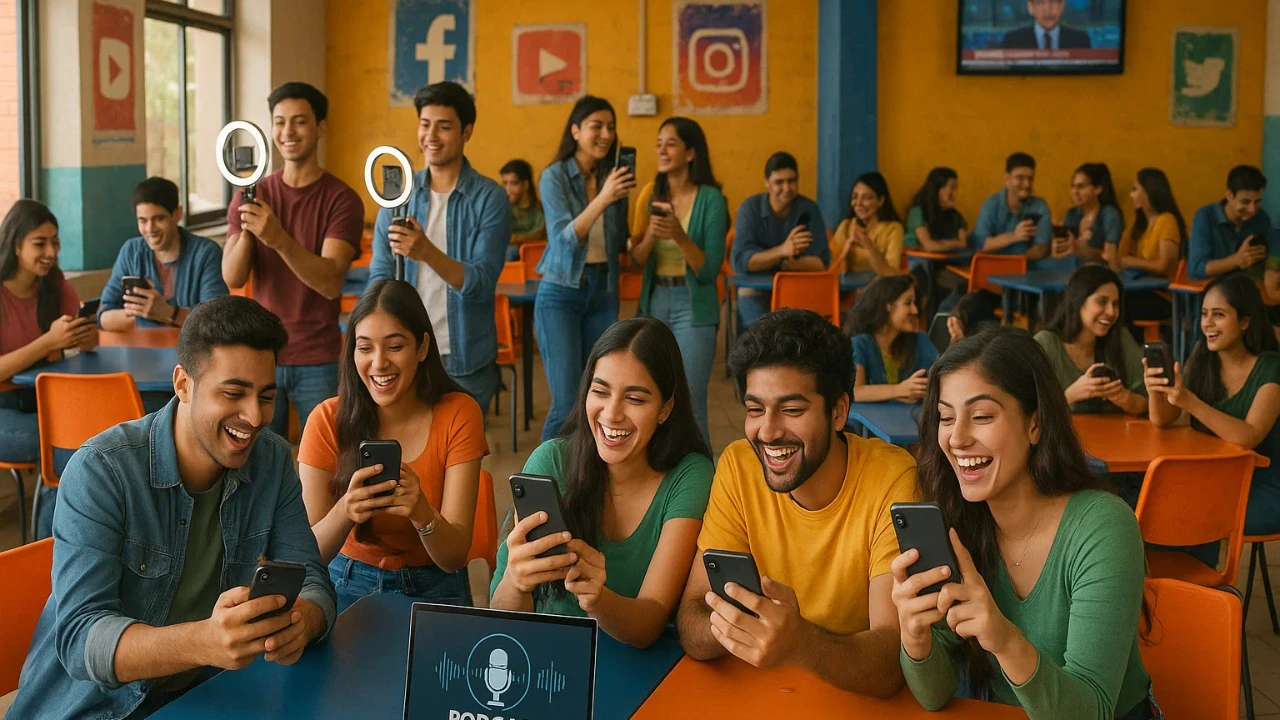

How an Indian Gen Z leader is reinventing design education
Director of the JD Institute of Fashion Technology Rinesh Dalal talks with Adgully about his experience reinventing design education through innovation, entrepreneurship, and creativity. Dalal, who joined the education sector at the age of 18, offers a unique combination of strategic thought and artistic vision to his leadership position. He considers creating experiential learning ecosystems outside of classrooms, from fostering creative communities and supporting emerging talent to extending the JD tradition into digital-first platforms like JDOnline and JD Podcast. Dalal also discusses how technology, narrative, and purpose will continue to influence design education in India.I was never ready to start working at such a young age, much less establish my own business. I had intended to continue my education in film in London, but because my family is very business-oriented, I decided to use that money to start my own company. In retrospect, I can see how much I have developed both myself and inside the company. I joined JD Institute four years ago, and it has been two and a half years since I assumed full leadership. I have acquired extensive practical experience throughout this period, which enables me to firmly continue this tradition. As a member of the same generation as today's youngsters, I am aware of their goals, mindset, and the help they require at various phases of their development.JDOnline was developed to close the accessibility gap by enabling anybody, anywhere, to receive top-notch design education without being constrained by traditional classroom settings. JD Podcast helps students grasp the real-world dynamics of the creative industry by providing them with authentic talks, thoughts, and experiences from artists, entrepreneurs, and industry leaders. This helps close the industry awareness gap.
Published 21 Dec 2025 09:53 PM
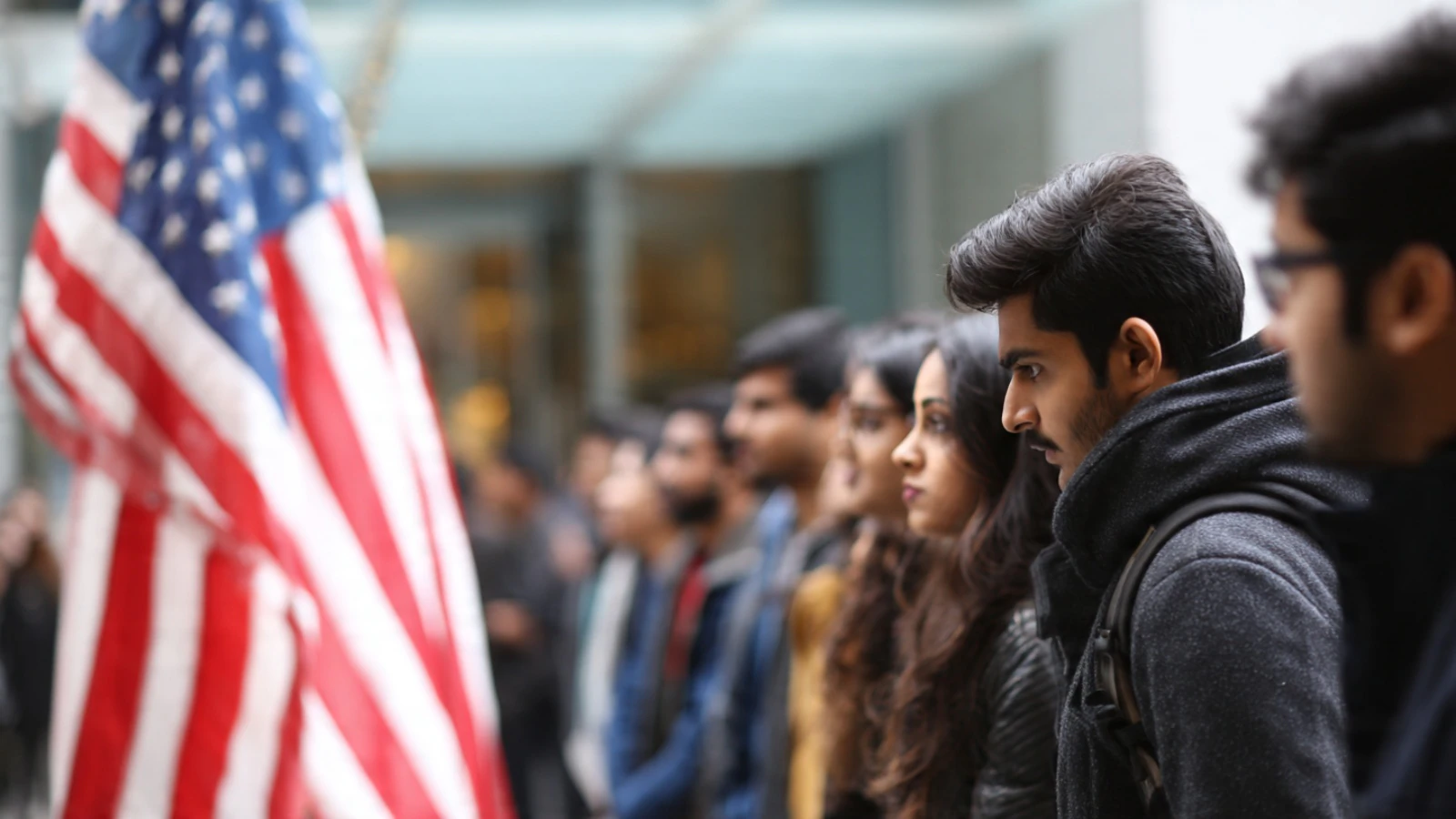

H-1B obstacles and OPT hope: Indian students in the US struggle with evolving visa regulations
Students and professionals are eagerly awaiting President Donald Trump's next step as Indian residents' chances of finding employment abroad have drastically decreased due to the US's restrictive immigration laws. The new regulation has left many people, particularly those who are about to graduate, scurrying to reevaluate their plans and look for alternatives elsewhere in a country that accounts for the biggest number of H-1B visa holders worldwide.Chell Roberts, dean of the University of San Diego, described the announcement as "like a seismic shock." "Students, families, and businesses who have long seen the H-1B as a bridge to opportunity have had their dreams disrupted. "The recent increase in the H-1B cost and the planned changes to the lottery system have made it more difficult for Indian students studying in the United States to obtain a work visa. Notwithstanding these difficulties, the Optional Practical Training (OPT) program is still an essential means of obtaining job experience, even though new regulations may restrict chances in the future. Although some students think that concentrating on developing excellent academic and professional profiles is still the most effective approach, others are worried about employment prospects and career timetables.
Published 16 Oct 2025 05:24 PM


Education
Education is also one of the biggest endustry and there are so many start ups are coming up with unique ideas to help education system and the kids to go to a new level.
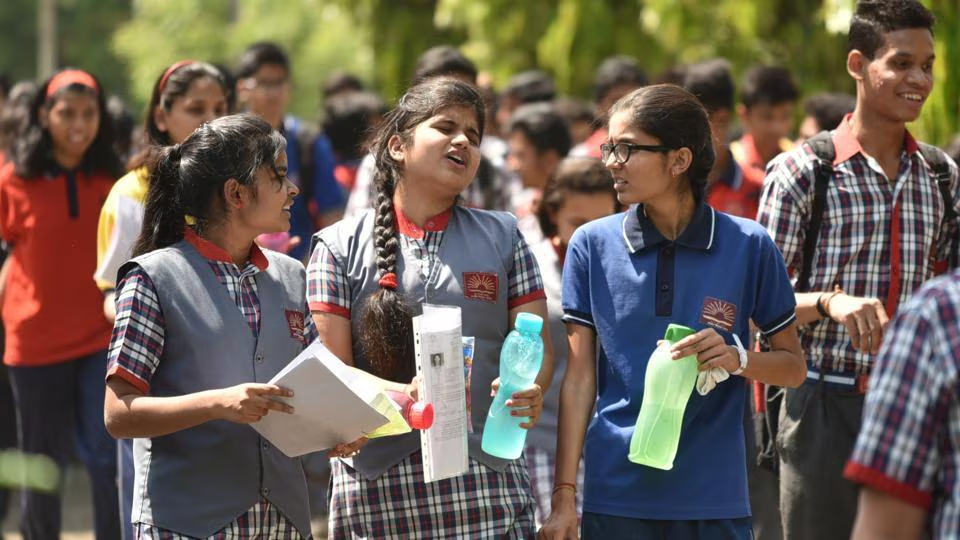

Students call on CBSE to reverse its decision to exclude more subjects for private applicants, saying it "defies the spirit of flexibility." The board answers.
The Central Board of Secondary Education (CBSE) issued a new notification on Monday that clarified the additional topic problem for private candidates in response to emails and outrage from a number of pupils. Students can choose "additional subjects only in Class 10 and 12," according to the Board. In Class 10, students can choose two more subjects, but in Class 12, they can only choose one. The extra subjects will be studied for two years by the pupils who receive them.In its circular, CBSE stated that "a regular student may appear as a private candidate under the Compartment or Essential Repeat Category if they have offered additional subjects in prior years and have been placed either in the Compartment' or Essential Repeat' category. "The Central Board of Secondary Education (CBSE) eliminated the opportunity for private students to pursue an extra topic in the 2026 board exams, a decision that caught thousands of applicants off guard. Students who had placed their academic futures on this provision, especially those who took gap years to re-align their careers, are outraged by the decision, which was made without any previous notice. From engineering admission exams like JEE (Joint admission Examination) and NEET (National Eligibility cum Entrance Test) to other higher education courses, many saw the "additional subject" as a vital springboard to professional eligibility rather than an academic luxury.


ICAI on postponed CA papers in Kathmandu: "Exams will be held once the situation is peaceful."
ICAI on postponed CA papers in Kathmandu: "Exams will be held once the situation is peaceful."Speaking about the situation, the president of ICAI explained that postponements of this kind are only made when it is not practical to hold exams. "We postpone the exam whenever there are disruptions. We are eager to perform our exam as soon as feasible once the atmosphere calms down," he stated, adding that fresh dates for the Kathmandu center would be announced as soon as things improved.The ruling follows nationwide protests that have been going on since the government temporarily banned social media.
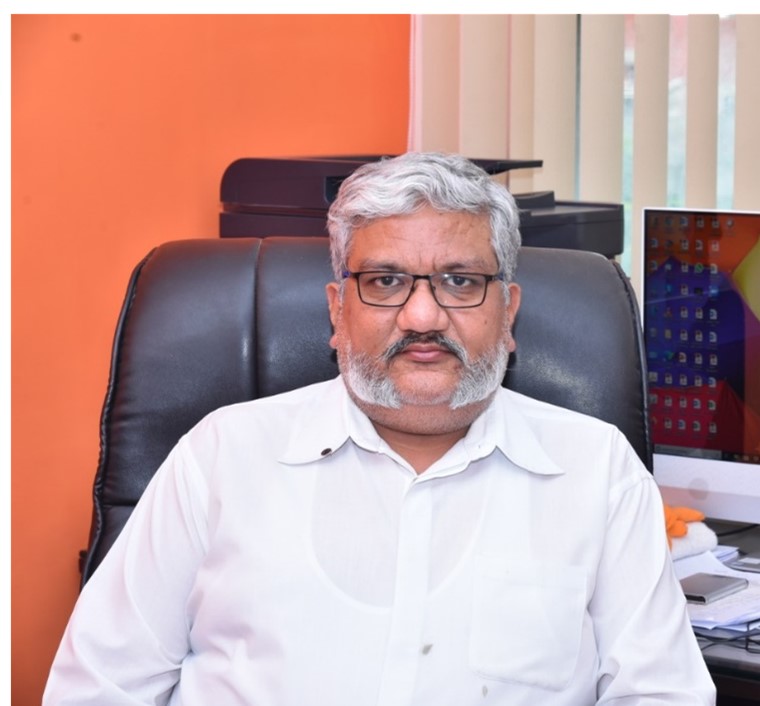

Regional language instruction in engineering will increase employment opportunities: The Director of IIT Jodhpur
Out of the 23 IITs, IIT Jodhpur was the first to allow first-year engineering students to study in Hindi last year. The Hindi department had 116 pupils in its first year, and this year there are 96 students enrolled.Although texts and tests are still in English, Hindi is the primary language of instruction in these schools. Students must switch to English-medium courses starting in their second year. On the same day, the Hindi and English parts are taught independently by the same faculty member. Even though the institute accepts students from all around the nation, Hindi is currently the only regional language provided.During the IIT Council meeting last week, Education Minister Dharmendra Pradhan requested that the IITs adopt regional languages as the medium of teaching in accordance with the National Education Policy 2020. However, each IIT's Senate still has the last say in the matter.Avinash Kumar Agarwal, the director of IIT Jodhpur, talked about the institute's initiative, difficulties, and future plans.The language spoken within 500–700 km must be examined. The Hindi belt is this. Therefore, we have no plans to translate it into another language. IITs number twenty-three. They are primarily local, yet they do have a pan-Indian aspect.Instead of everyone using Hindi by default, it would make much more sense if each IIT adopted the local tongue. We will be able to serve more students in this way. About 60% of the 600 students in Jodhpur are from the Hindi belt, with the remaining 20% coming from other regions. The English portion is for them.I'd enjoy it, ideally. However, in practice, it is quite difficult. You need twice as many professors, classrooms, and intricate class scheduling logistics if you start offering instruction in a second language. There are just two sections in the first semester. The logistics are therefore simple. They are just taking required classes that are the same for everyone, including algebra, physics, and chemistry. It becomes 14 sections at the department level, which begins in the second year.
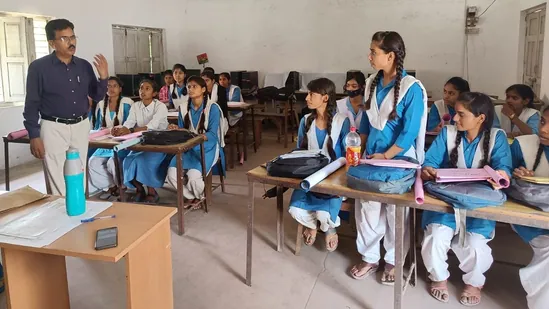

In Andhra government schools, individualized software increased learning rates: study
According to an evaluation study conducted by researchers, including economist and Nobel laureate Michael Kremer, a personalized learning program implemented in government schools in Andhra Pradesh doubled the learning rates of its users.A student's learning level is determined by the Personalised Adaptive Learning (PAL) software, which is currently utilized on tablets in more than 1,200 schools around the state. Based on this evaluation, learning materials and quizzes are provided. It is intended to handle variations in learning levels and abilities within a class by customizing lessons to each student's level. ConveGenius was a partner of the Andhra Pradesh government.For kids in Classes 6 through 9, AI, an AI-powered adaptive learning solution platform, will launch their CG PAL in 2019.In an independent study of Andhra Pradesh's Personalised Adaptive Learning (PAL) model, researchers—among them Nobel Prize-winning economist Michael Kremer—found that students who used PAL with the aid of software that gamified mathematical concepts tailored to elevating the individual learning levels achieved learning gains worth 1.9 years of schooling, in comparison to students who did not use PAL. On Monday, September 8, 2025, Professor Kremer was in New Delhi presenting the evaluation's results. "As compared to those students who did not use the software, students in Grades 7 to 9 who received the PAL program over two academic years (roughly 17 months) and spent 35.3 hours using the software to learn math concepts learned at almost double the rate," he told The Hindu. The assessment also included sixth-grade students.In order to conduct a Randomized Control Trial (RCT), Mr. Kremer and his team chose 60 government schools in Andhra Pradesh and split them into 30 schools that received the PAL intervention and had computer labs and tablets pre-loaded with PAL software from the Delhi NCR-based edtech company ConveGenius AI, and another 30 schools that were placed in a control group.
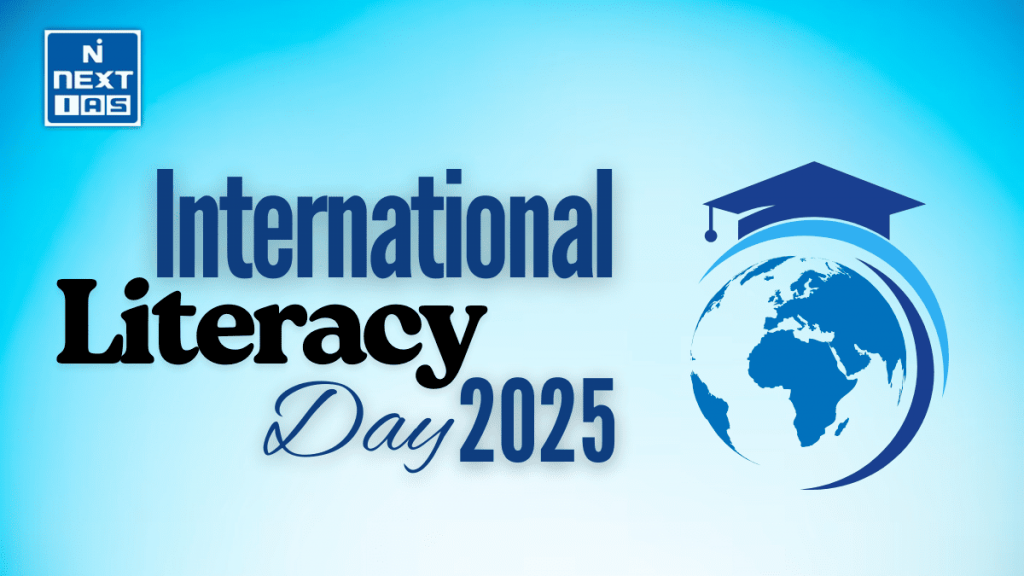

Today's International Literacy Day 2025: Background, theme, and other information
International Literacy Day 2025: Today, September 8, is International Literacy Day 2025, which is observed by nations worldwide. The day reflects on the value of literacy, looks at advancements, and tackles enduring issues. Since many millions of people throughout the world still lack basic reading and writing abilities, the significance of September 8 as a date has not faded. Its origins may be traced back to UNESCO's historical efforts to advance education as a universal human right.International Literacy Day (ILD) is celebrated annually on September 8th to remind communities, governments, and educators of the critical role that literacy plays in building a more sustainable, equitable, and peaceful society. Since its establishment in 1967, the day has functioned as a rallying cry to guarantee that everyone can benefit from the basic human right to reading, irrespective of age, gender, or background. International Literacy Day will be observed worldwide on Monday, September 8, 2025. The primary celebration will be held at UNESCO Headquarters in Paris, France, with events planned at the international, regional, national, and local levels.For ILD 2025, the topic is: "Encouraging Reading in the Digital Age." Why this particular theme? Rapid digitalization is altering how people connect, learn, work, and live. Digital tools offer learning opportunities, but if people lack fundamental reading and digital abilities, they can also exacerbate inequality.Adopted by UNESCO: In 1966, UNESCO announced the concept of International Literacy Day. First commemoration: In 1967, the day was first observed. Goal: To promote initiatives aimed at lowering global illiteracy and to emphasize the value of literacy for people, communities, and countries. The commemoration has changed throughout the years to address new issues, such as digital literacy and lifelong learning, as well as conventional illiteracy.
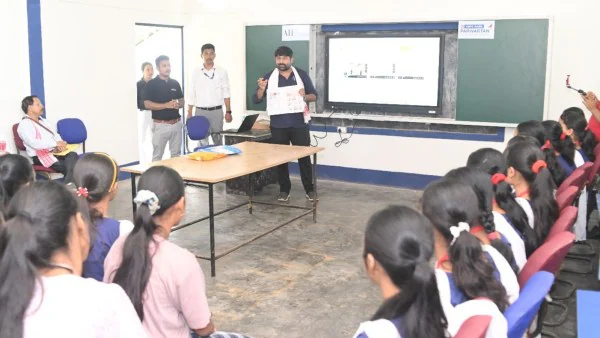

A teacher from Assam receives the National Teachers Award for traveling 150 km each day through a national park to get to school.
Every day, 34-year-old teacher Debajit Ghosh travels 150 miles to go to his school in the tea plantations of Assam. He travels through the challenging Dihing Patkai National Park, where muddy roads and elephant crossings are frequent occurrences. According to Indian Express, he is still dedicated to teaching kids who had to drop out of school after completing their primary education in spite of these obstacles. Ghosh stays in Dibrugarh despite the exhausting and protracted travel in order to oversee the developmental activities at Namsang Tea Estate Model School. Since there is no direct public transportation to the school, he drives there with two other teachers, while others ride their bikes.In order to efficiently supervise the development work of Namsang Tea Estate Model School, which was established in 2022, Ghosh decides to remain in Dibrugarh despite the lengthy journey. Since there is no direct public transportation to the school, he uses his car to provide a ride to two other instructors, while others rely on bikes. At Dibrugarh Bengali High School, where Ghosh started teaching in 2013, he had a pivotal moment with Abhishek, a Class 8 boy who failed in science and detested writing. Abhishek made significant progress under Ghosh's tutelage, earning a perfect score of 100 in Science and 93 percent overall in the Assam board Class 10 examinations. Abhishek has a deep love for science and is currently working on a PhD in mathematics despite financial challenges. Ghosh's conviction that fostering curiosity is more important than merely pursuing marks was strengthened by this encounter.Ghosh has been instrumental in providing secondary education to children from tea garden communities as the principal of Namsang Tea Garden Adarsha School. The school has successfully reintegrated more than 300 out-of-school students into the classroom in just two years. Due to the hazardous trek through Dihing Patkai National Park and the dearth of secondary schools in the area, many kids used to drop out. Students now have access to secondary education near their homes thanks to the new school. Enrollments increased from 271 in the first academic year to 326 in the second.
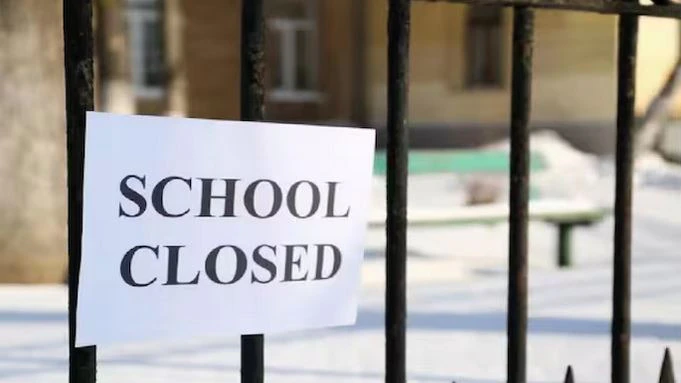

On September 5, are schools in Delhi-NCR closed?
Due to holidays, Teacher's Day, and unfavorable weather, schools in Delhi-NCR and numerous Indian states will be closed this week. It is recommended that parents and students monitor local notifications for any updates.On September 5, 2025, a number of Delhi-NCR schools will be closed in honor of Eid-e-Milad-un-Nabi, a major religious holiday in the area. To prevent any misunderstandings, parents and children are encouraged to check holiday schedules directly with their individual schools.This week, a number of Indian states will observe vacations in honor of festivals and other noteworthy events. Onam, Kerala's traditional harvest festival, will be observed from September 4–5, 2025, bringing with it cultural events and statewide public holidays.On September 5, 2025, Teacher's Day will also be celebrated nationwide. Some educational institutions may plan half-day events to commemorate the event, even though the majority of schools will stay closed. It is recommended that citizens and students adhere to state-specific notices regarding any modifications to holiday schedules. The state government of Punjab has decided to extend the school holidays until September 7, 2025. All government, assisted, recognized, and private schools, as well as colleges, universities, and polytechnics throughout the state, are subject to this closure. Due to the ongoing, intense rains and extensive damage, all public and private institutions and colleges in Himachal Pradesh, including the District Institutes of Education and Training (DIETs), will be closed till September 7.The Indian Meteorological Department (IMD) in Haryana has predicted significant rainfall, which has led to the closure of schools in Ambala and Jhajjar. To protect students, all public and private schools as well as Anganwadi centers will be closed until September 5 in Ambala and September 6 in Jhajjar. For any adjustments to the academic timetable, parents and students are encouraged to stay updated via official school notifications and local authorities.
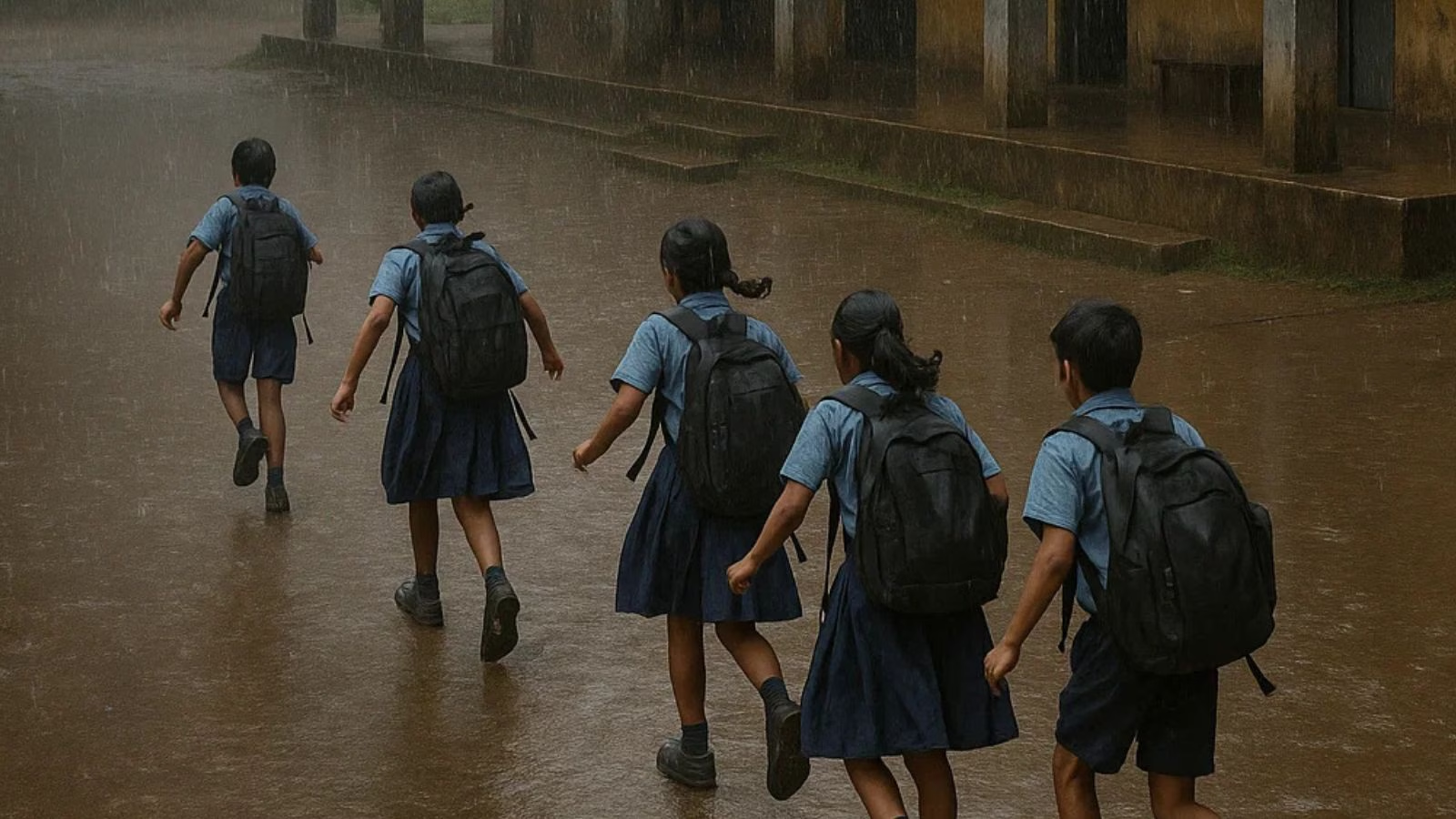

Punjab extends school breaks until September 7; schools in Ghaziabad and Noida are closed today.
Schools in Ghaziabad, Noida and Greater Noida, Bulandshehr, Jammu Kashmir, Punjab, and Chandigarh are closed today, September 3, due to severe rains, flooding, and unfavorable weather. It's raining in Gurgaon. Given the circumstances, parents and kids are concerned about whether all public and private schools will declare closures because of the bad weather. Because of the continued flood situation in the state, the Punjab administration decided to prolong the school holiday until this week.Due to heavy rainfall, the school will remain closed for all students from Pre-Nursery through Grade XII on Wednesday, September 3, 2025, in accordance with the Guatam Buddha Nagar District Magistrate's order (Circular No. SSA/6674-84/2025-26 dated September 2, 2025).All schools and institutions will be closed on September 3, according to the official Ghaziabad school holiday order, which was issued by District Magistrate Ravindra Mandad and implemented by Basic Shiksha Adhikari (BSA) O.P. Yadav. "On September 3, 2025, a holiday has been announced for all educational institutions up to Class 12 in order to protect pupils and address the exceptionally high levels of rainfall in Ghaziabad. "This order must be strictly followed," the warning said. Schools in Gurgaon are also anticipated to be closed tomorrow due to the ongoing rains. A formal public announcement has not yet been made, though. Schools may continue to provide online courses if the extreme waterlogging and traffic interruptions continue to be a major problem.For offline classes, the schools were closed today. To finish the syllabus on time, some schools, however, kept offering online courses. For the most recent information about school holidays, students are encouraged to contact their individual schools.


Harvard aspirations in the shadow of Trump: Indian students are divided on whether to attend or remain
The image was straightforward: a woman standing beneath a red Harvard flag with Massachusetts Hall's red brick rising in the background. It was more than just a photo to the 52-year-old principal of a school in Delhi; it was evidence that she had come to start a master's degree in education at Harvard University.Harvard's accreditation to accept international students was revoked by the US Department of Homeland Security (DHS) in May. In addition to refusing to provide surveillance footage and disciplinary records of international students linked to protests, Homeland Security Secretary Kristi Noem accused the university of creating a “hostile” school environment for Jewish students. Harvard was given 72 hours to comply after the action shut it out of SEVIS, the federal database that controls visas. The ruling put over 7,000 international students on campus—nearly 800 of whom were Indian—in immediate legal danger. For those who were admitted for Fall 2025, it was like a dream that vanished in an instant.Calling the revocation "a series of government actions to retaliate against Harvard for our refusal to surrender our academic independence," Harvard retaliated in court. The institution had considerable leeway because to a temporary restraining order. However, there was still uncertainty for new overseas students. The principal of Delhi considered her choices. Yes, she said, "I was overwhelmed, but I knew reversals had happened before." "I might go next year if I didn't go this year. However, it isn't the case for many people younger than me. There would be a significant opportunity loss. After her social media profiles were examined, she received her visa on July 29. After packing, she took a plane to Boston. She is currently attending leadership and curriculum design classes.Like her, other others made the decision to jump in. A 26-year-old Gujarati who received a prestigious grant to attend Harvard's Kennedy School recalls the predicament clearly. It was almost unreal and dramatic. However, I persuaded myself that I would always regret not taking this chance. He acknowledges that the uneasiness still exists, but he is currently starting his public policy studies. "That crisis reverberates in every discussion with classmates. As international students, we must exercise caution, keep quiet, and focus on our goals.


Are the Class 9 Open-Book Assessments by CBSE causing more learning, less stress, or weakened foundations? There are many worries.
Open-Book Assessments (OBAs) will be implemented for Class 9 pupils by the Central Board of Secondary Education (CBSE) starting with the 2026–2027 school year. The plan, which was approved by the board's governing body in June, comes after a trial study for Classes 9–12 was carried out in a few schools in late 2023.The Board states that these tests will be included in the three pen-and-paper exams given every academic year and will include languages, mathematics, science, and social science. While completing the papers, students are permitted to refer to their approved reference materials, textbooks, and class notes. In addition, the CBSE stated in its statement that the format aligns with the National Curriculum Framework for School Education (NCFSE) and the National Education Policy (NEP) 2020, both of which place a strong emphasis on "competency-based learning."Open-book exams let students bring in resources, including textbooks, printed content, or other materials as designated by the school, and use them while answering questions, in contrast to traditional exams that mainly assess the student's memory of "textbook-lessons."The material's availability, however, does not make the test any simpler. Knowing what to look for and how to use it is the difficult part for pupils. For instance, students may have all the formulas in front of them when writing a science paper, but the true challenge is to use concepts, analyze trends, and interpret data to solve an issue. The CBSE has attempted this kind of reform before. The Open Text-Based Assessment (OTBA) for Classes 9 and 11 was introduced in 2014. Months in advance, the students received reference materials, from which questions were derived. But by 2017, the board decided that OTBA had not significantly improved critical or analytical skills, therefore it was canceled.The Board also noted in the notification that during the pilot study, they noticed certain performance issues; however, these issues could be resolved with the help of teachers, standardized sample papers, and excellent questions that encourage test-takers to think critically. This time, it is anticipated that CBSE will offer evaluation frameworks, teacher-training materials, and sample papers to assist schools. A few of principals suggested that the rollout be phased in and accompanied with feedback loops between the board and the schools. Students will require assistance from teachers as well as direction on how to practice and use those abilities in practical situations.
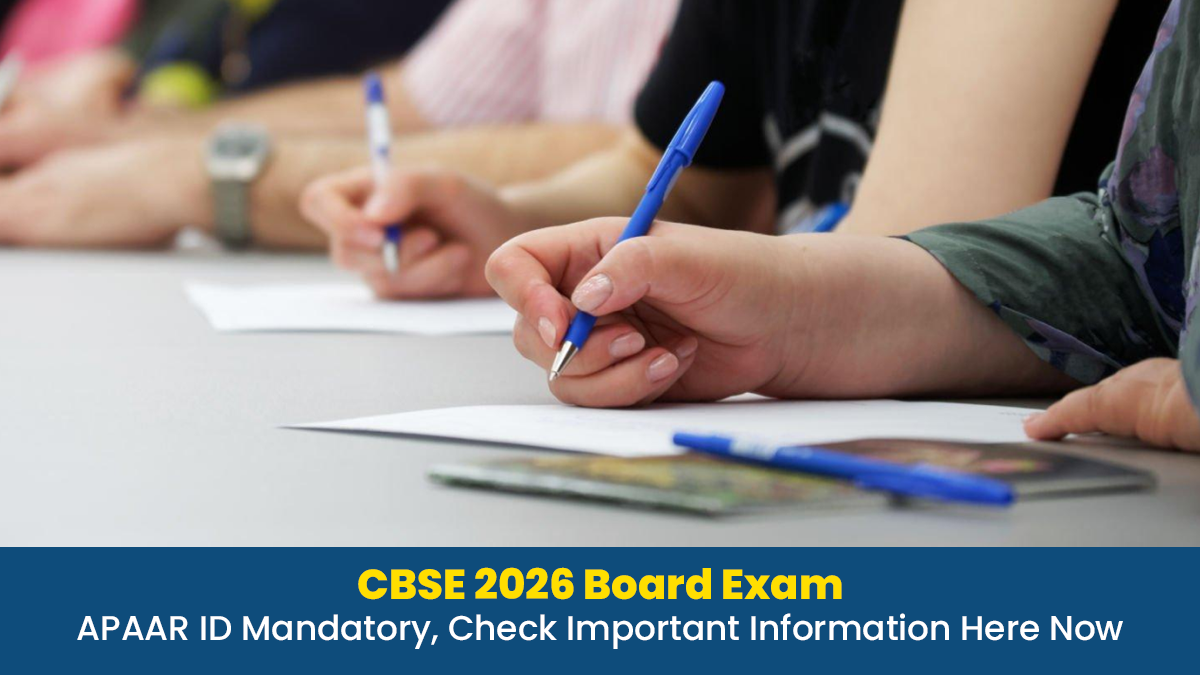

For the 2026 Board Exams, CBSE Sends Out An Important Notice To Schools; See Details
For the 2025–2026 Class 10 (initial examinations) and Class 12 main examinations, the Central Board of Secondary Education (CBSE) has issued comprehensive guidelines for schools on how to submit the List of Candidates (LOC).The CBSE has implemented a two-board exam scheme for Class 10 from 2025–2026 for the first time. Midway through February 2026 is when the Class 10 first exam is planned, and schools must turn in the LOC by that date. The board has emphasized that all Class 10 pupils must be included in the LOC submission.According to CBSE, all Class 10 students will be required to take the main exam in February 2026, and all candidates must be included in the LOC. While submitting data, schools must also attach students' APAAR IDs; however, foreign-based institutions are exempt.In its most recent announcement, the Central Board of Secondary Education detailed important changes to the List of Candidates (LOC) submission process for the 2026 Board Examinations for Classes 10 and 12.One of the most important steps in getting ready for the annual board exams is submitting the LOC.For Class 10, the CBSE is implementing a two-board exam policy, which requires schools to make sure that each candidate's LOC is filed appropriately. The CBSE reaffirmed that all students must take the Class 10 Main Exams, which are scheduled for mid-February. As a result, all candidates must complete the LOC. According to the board, LOC for the Class 10 Second Board Examination will be completed at any moment following the conclusion of the first exam.Additionally, CBSE has chosen to link candidates' Automated Permanent Academic Account Registry (APAAR) IDs for both Class 10 and Class 12 LOC data. This change will allow Indian CBSE-affiliated schools to fill out the LOC for applicants who have the APPAR ID. When the LOC is submitted, the Board will verify the APAAR ID that was filled out.However, the board stated that linked institutions located overseas are excluded from APAAR due to a variety of administrative factors and national laws.
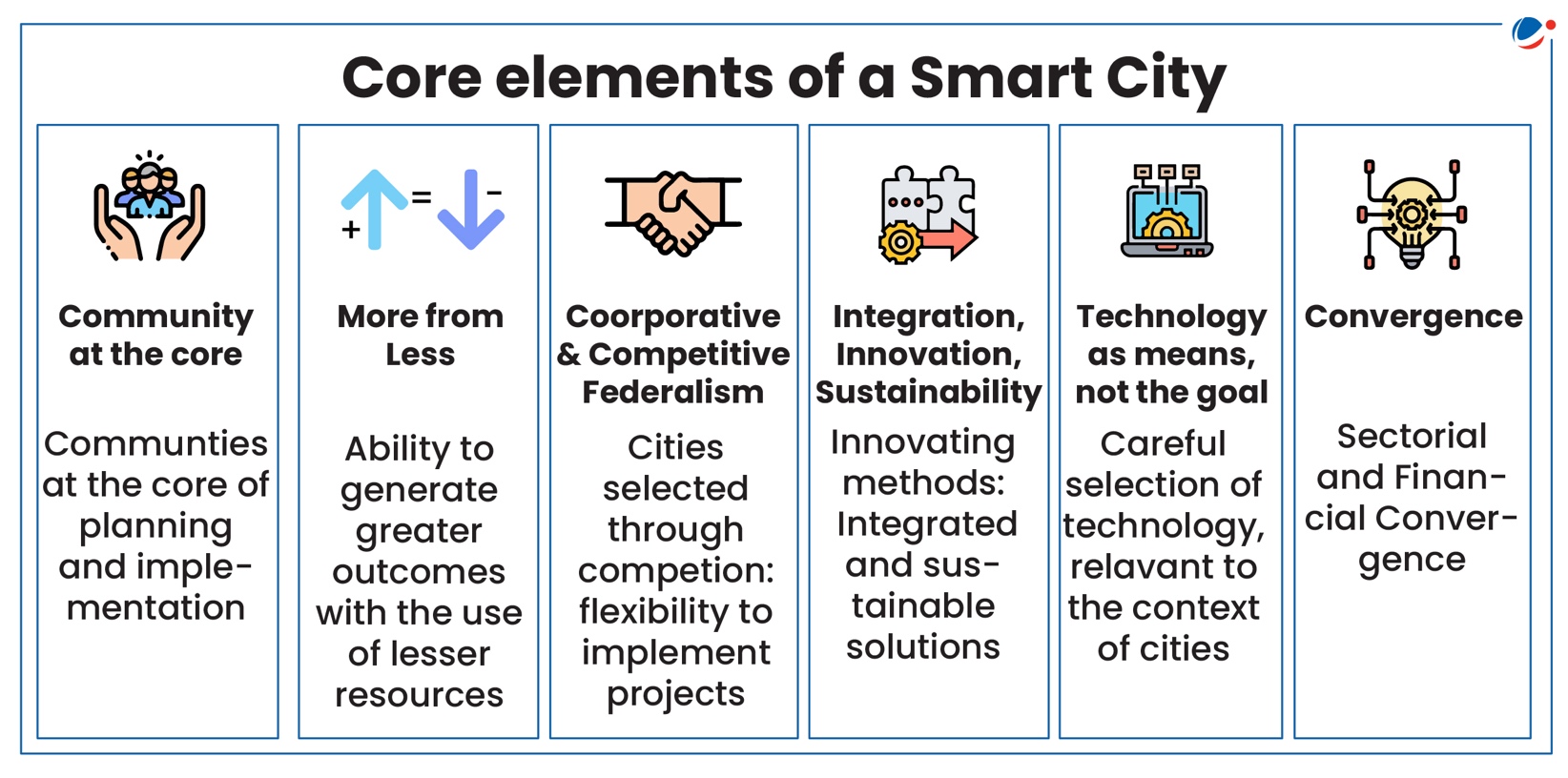

An Overview of the UPSC Issue | From Smart Cities to Smart Villages: Essential Knowledge for UPSC Candidates for Prelims and Mains
By concentrating on topics that are generating news, UPSC Essentials' initiative, UPSC Issue at a Glance, aims to simplify your UPSC Current Affairs preparation for the preliminary and mains exams. Discuss a different subject in an understandable manner every Thursday. The goal of Smart Cities and the Smart and Intelligent Village initiative are explained to you this week, and then the case study is presented. Let's begin. According to the Smart City Index 2025, which was just released by the International Institute for Management Development (IMD), Swiss cities remain at the top. Although they are not among the top 20, Indian cities are nonetheless involved in the global smart city initiative. In light of this, it becomes crucial to grasp not just the salient features but also India's Smart City Mission and how intelligent and smart villages may support rural development.Government policies and interventions for development in many areas, as well as difficulties resulting from their design and implementation, are covered in UPSC Mains Syllabus: General Studies I, II. In the past, UPSC has questioned how distributive justice and urban poverty are addressed in India's smart cities. This year, there was also a question about the "Smart City Program" in the Mains general studies paper II.
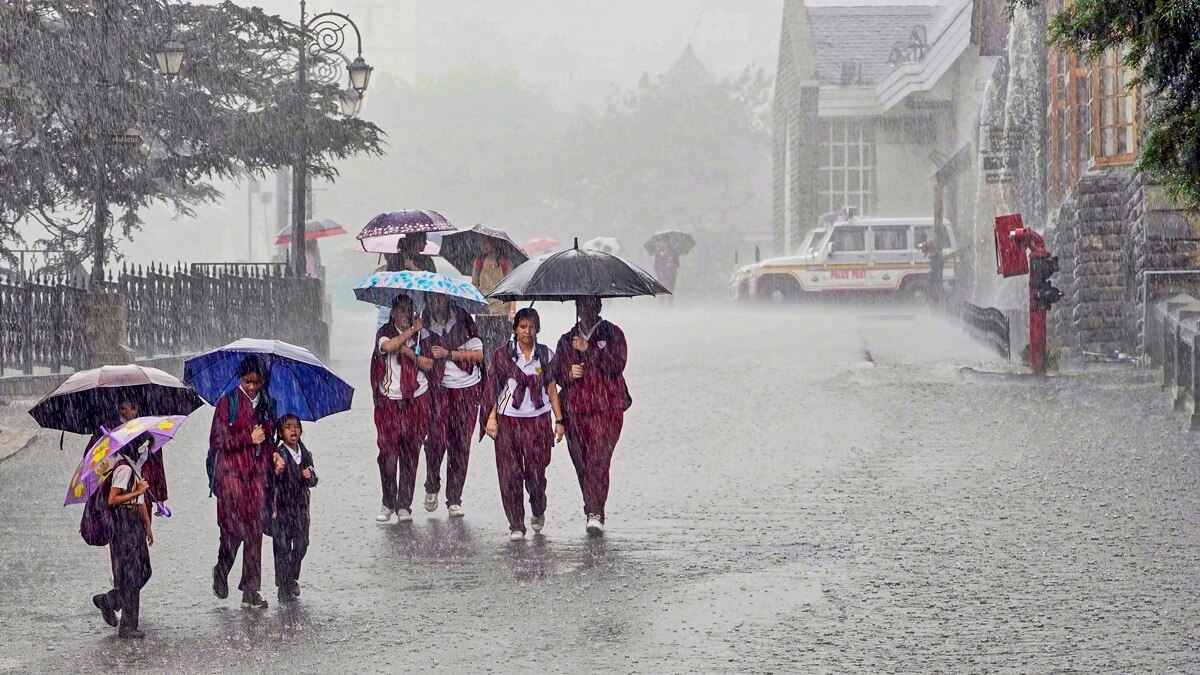

August 27 Due to the rain, schools in Jammu, Punjab, and Himachal are closed today.
J&K, Punjab, and Himachal Schools Closed: Several state governments and district administrations have made the decision to close schools, colleges, and other educational facilities in their respective states as a result of the country's weather. The states with closed schools on August 27 are listed here.Kashmir and Jammu On Wednesday, August 27, 2025, all government and private schools in the Jammu division will be shuttered due to the region's ongoing high rains and flood-like circumstances. In the Union Territory, schools have been closed for the third day in a row. In light of the harsh weather that is still occurring, Dr. Naseem Javaid Chowdhary, JKAS, Director of School Education, Jammu, issued an official order that forbids teachers and students from going to class or walking outside.A number of states have declared Wednesday, August 27, to be a school holiday for a variety of reasons, including festivals and heavy rains. While schools in regions like Maharashtra and Karnataka will remain closed due to Ganesh Chaturthi celebrations, schools in Jammu and Kashmir, Punjab, and Himachal Pradesh have been asked to close due to inclement weather.From August 27 to 30, the Punjab government has announced holidays in all public and private schools. According to Chief Minister Bhagwant Mann, the action was required since the weather service has predicted further downpours in the days ahead and heavy rains have hit numerous areas of the state. Among the districts most severely affected by flooding are Hoshiarpur, Kapurthala, Ferozepur, Jalandhar, Gurdaspur, Pathankot, Rupnagar, SBS Nagar, and Fazilka.As the heavy rains continue to disrupt daily life, several districts in neighboring Himachal Pradesh have also ordered the closure of schools. Landslides and overflowing rivers are making matters worse, and local authorities are keeping a careful eye on the situation.To commemorate Ganesh Chaturthi, schools in a number of states, including Maharashtra, Goa, Karnataka, Telangana, Andhra Pradesh, Gujarat, and Madhya Pradesh, will be closed on Wednesday. The celebration, which is widely observed, is a public holiday in certain areas and is customarily observed in schools and universities as well.


Why some of us lean left, while the majority of us lean right
Have you ever noticed that most people use their right hand to write, eat, or throw, whereas some use their left? For ages, this basic habit has baffled parents, educators, and even scientists. According to current research, handedness is a fascinating combination of genes, environment, and brain wiring rather than only a choice.AN EARLY BRAIN CHOICE The two parts of our brain are referred to as hemispheres. Language and fine motor skills are controlled by the left hemisphere in almost 90% of persons, meaning that the dominant hand is the right one.In roughly 10% of cases, however, this wiring appears differently. Left-handedness may result from their brain's tendency to divide tasks more evenly or from the right hemisphere taking the lead. When nerve connections are still developing, this process begins before to birth.Although some genes have been identified by scientists as being associated with handedness, none of them by itself can determine the outcome. Rather, handedness seems to be influenced by a variety of minor genetic influences as well as fetal variables including hormones, stress, or even the way a baby lies before birth. Learning in early childhood can also throw off the equilibrium, particularly if a youngster tries using both hands before choosing one.Culture also has a role. Being left-handed was stigmatized for generations. "Sinister" actually means "left" in Latin, and many schools used to make students use their right hand instead. Even if these customs have diminished, the world is still mostly made for right-handers—just take a look at cricket equipment, tables, and scissors. However, well-known leftists like Barack Obama, Sachin Tendulkar, and Leonardo da Vinci serve as a reminder that the left hand has created some of the greatest minds in history.
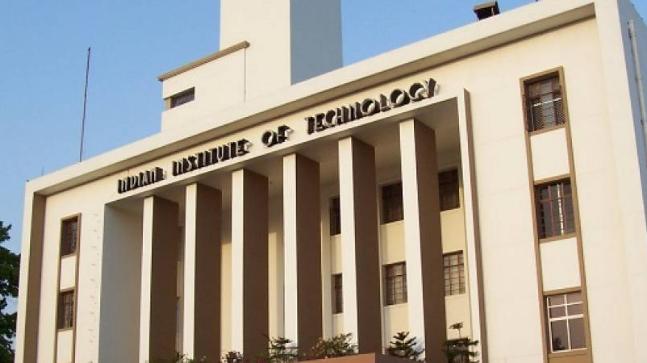

After two years, the IIT council will meet again, with JEE Advanced revisions and credit transfer on the agenda.
According to sources, the 23 top engineering colleges' apex coordination body, the IIT Council, will convene on Monday after a two-year break to discuss important topics like credit sharing across IITs and reducing the reliance on tutoring for JEE Advanced. The meeting's agenda also covers topics like improving scholarships and pocket allowances for SC and ST students as well as IIT accreditation.April 2023 was the last time the council met. Sources claim that the council will prioritize building an intensive and outcome-oriented peer review procedure in IITs as well as credit sharing among the 23 IITs under the National Credit Framework (NCrF) framework. The NCrF mechanism is not currently used by the IITs.A thorough and outcome-oriented peer review process in IITs, research commercialization in higher education institutions (HEIs), reforms and accountability in PhD education, IIT education as the engine of "Atmanirbhar and Samriddha Bharat," and bridging discovery and impact are among the other topics on the agenda. The discussion will cover "the accreditation of premier engineering institutes," according to a source.The IITs should be included in the national accreditation and assessment system suggested in the National Education Policy (NEP) 2020, according to a May 2023 recommendation made by the Radhakrishnan Committee, which was established to identify steps for improving the evaluation and certification of HEIs.The council is also anticipated to address attempts to address language barriers through regional languages, improve merit-cum-means scholarships and pocket allowances for SC and ST students, and address mental health and wellness measures.
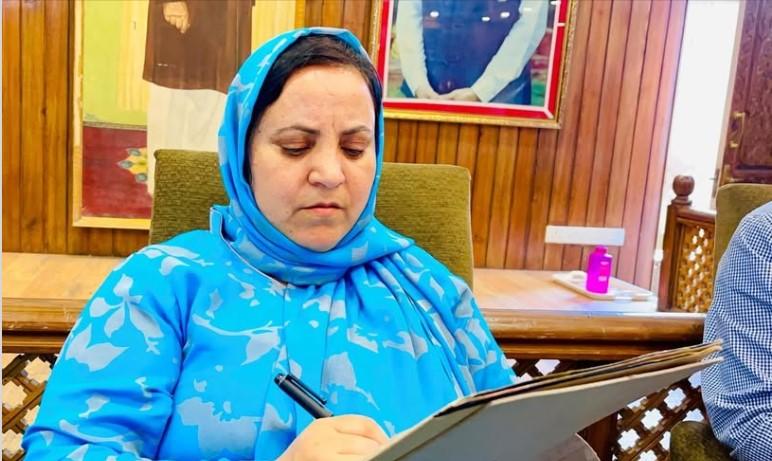

JK According to the education minister, the original plan was never meant to take over schools connected to JeI and FAT.
August 23, Srinagar: On Saturday, Education Minister Sakina Itoo stated that the initial plan was for cluster principals, not deputy commissioners, to oversee the 215 schools connected to the outlawed Jamaat-e-Islami (JeI), just hours after the government of Jammu and Kashmir ordered their seizure. In contrast to the directive from the School Education Department Secretary, an IAS officer who answers to the LG, the minister claimed that the draft she endorsed said that the cluster principals would oversee these schools.The JeI and its associate Falah-e-Aam Trust (FAT) were in charge of the schools until the Secretary issued an order late Friday night to take control of them. According to the decision, district magistrates or deputy commissioners would assume control of these schools' management and then suggest a new management committee. Hours later, though, the Education Minister explained that the order did not state the department's initial suggestion. "Unfortunately, there are rumors going around that the Education Department has taken over the FAT schools," Itoo stated in a video message. According to her, the management committees of these 215 schools were left in the dark because they had gotten negative CID verification six to eight years prior. "People and students used to frequently come to us because they were having trouble during board exams. They were rejected by the J&K Board of School Education. "There are more than 51,000 students enrolled in these schools, and the Education Department decided that the closest cluster principals would oversee them," she explained. The minister went on to say, "Students, teachers, and structures would remain as such; only the closest principals would look after them until new management committees were formed." According to her, the choice was made in order to protect the pupils' futures in these schools.
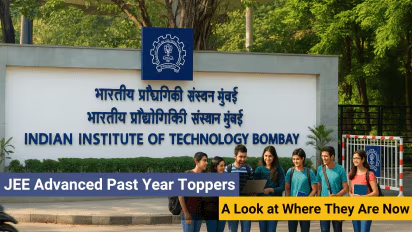

IIT-JEE Advanced Previous Years' Toppers: A Look at Their Current Positions
JEE Advanced Toppers List: In addition to making headlines, the top scorers in JEE Advanced have had fascinating and diverse academic trajectories over the years. Here are some recent toppers and their current activities.He is currently in his fourth year of studying computer science engineering at IIT Bombay. Mridul is an incoming Quantitative Researcher with Tower Research Capital, a well-known trading company, according to his LinkedIn profile. Ved Lahoti (2024), Vavilala Chidvilas Reddy (2023), RK Shishir (2022), and Mridul Agarwal (2021) are among the top JEE Advanced scorers from the previous several years. With 355 out of 360, Ved Lahoti, who earned All India Rank 1 in 2024, also set a record for highest scores in JEE Advanced history. Vavilala Chidvilas Reddy topped the test in 2023 with a score of 341 out of 360. In 2021, Mridul Agarwal received 348 out of 360 points, earning him an AIR 1.
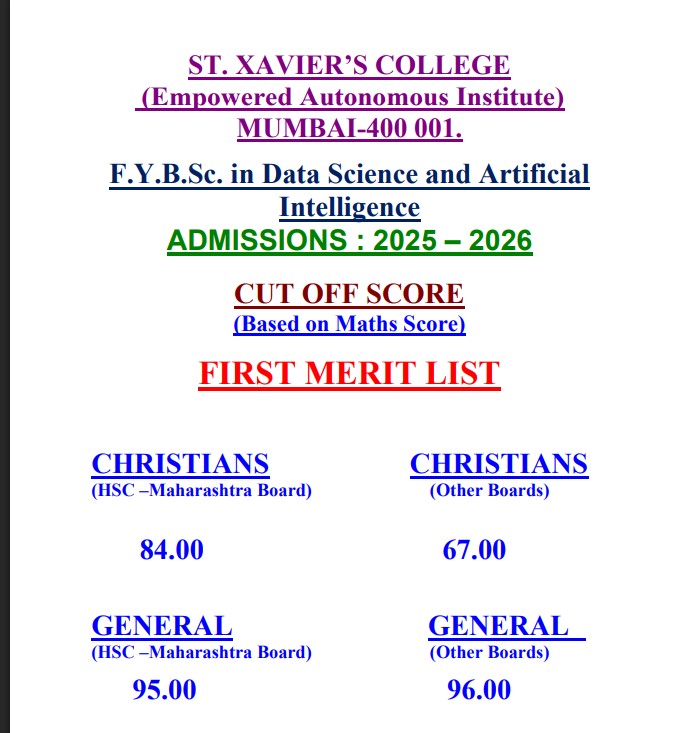

Mumbai University Admissions 2025: Visit mu.ac.in today to view the first UG degree merit list
Mumbai University Admissions 2025: The first undergraduate merit list will be made public by the University of Mumbai today. When the merit list is made public, students who applied for the undergraduate program can view it on the official website, mu.ac.in. At 5:00 PM, MU will make the merit list public. More than 8.1 lakh applications have been submitted to the institution this year by students seeking admission to a variety of degrees.Students can now verify whether they have a spot in the institution and the course of their choosing after applying for courses such as BA, BCom, BSc, BMS, BAF, BMM, BBI, and BFM, among others. For the merit lists, candidates can check the physical notice boards at the colleges or go to the official college websites. The mark sheets for Classes 10 and 12, transfer certificates, caste or category certificates (if applicable), and any other supporting documentation should be kept on hand, according to college advice. Before visiting universities, applicants must also make sure they have finished the online pre-admission enrollment form.Colleges have been directed to adhere closely to the admissions schedules and to keep everything open and honest at all times. In addition, the university has established helplines for students to contact with questions or complaints and has cautioned colleges against any unfair admissions tactics.


















